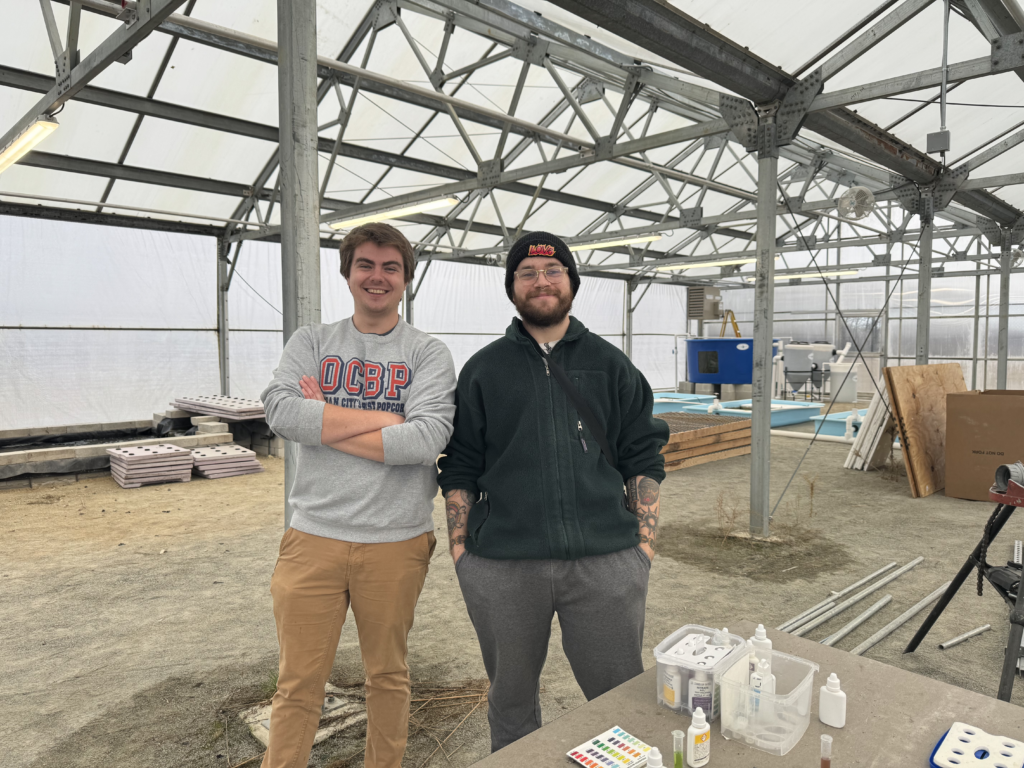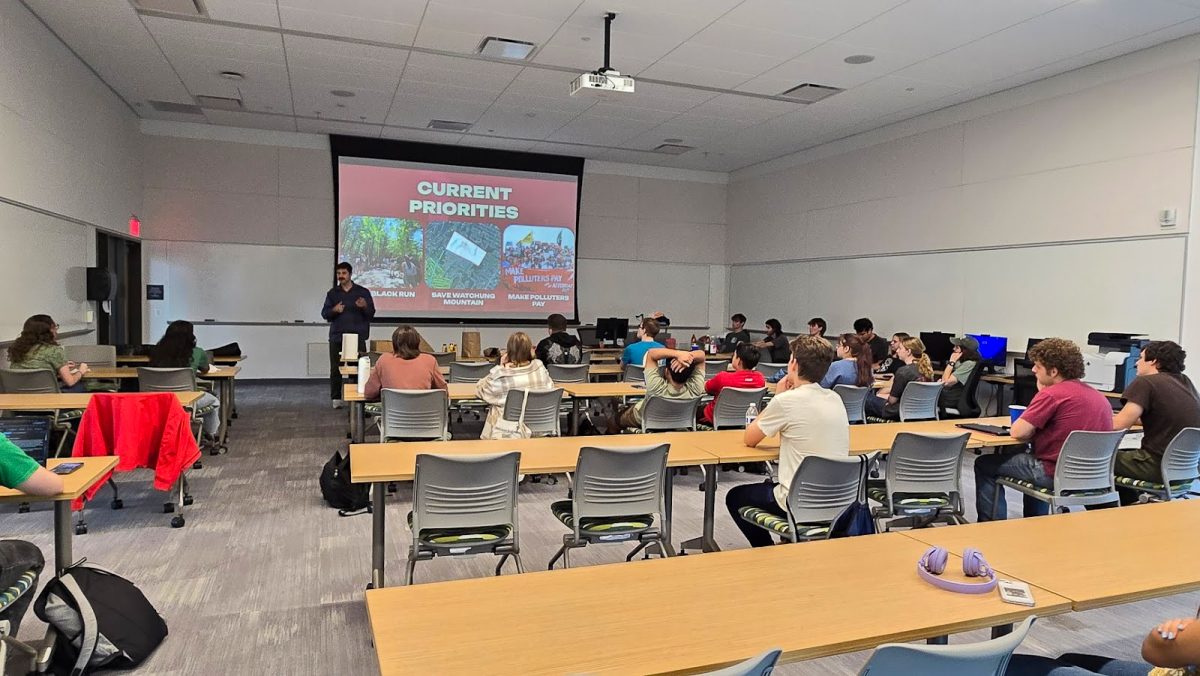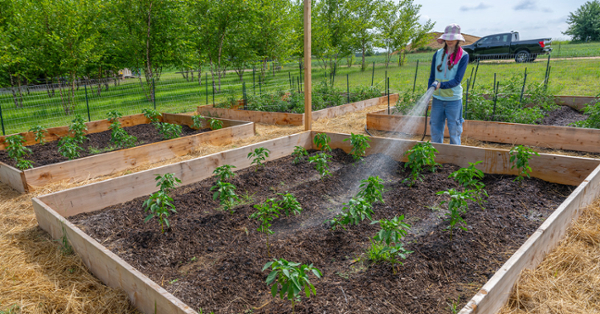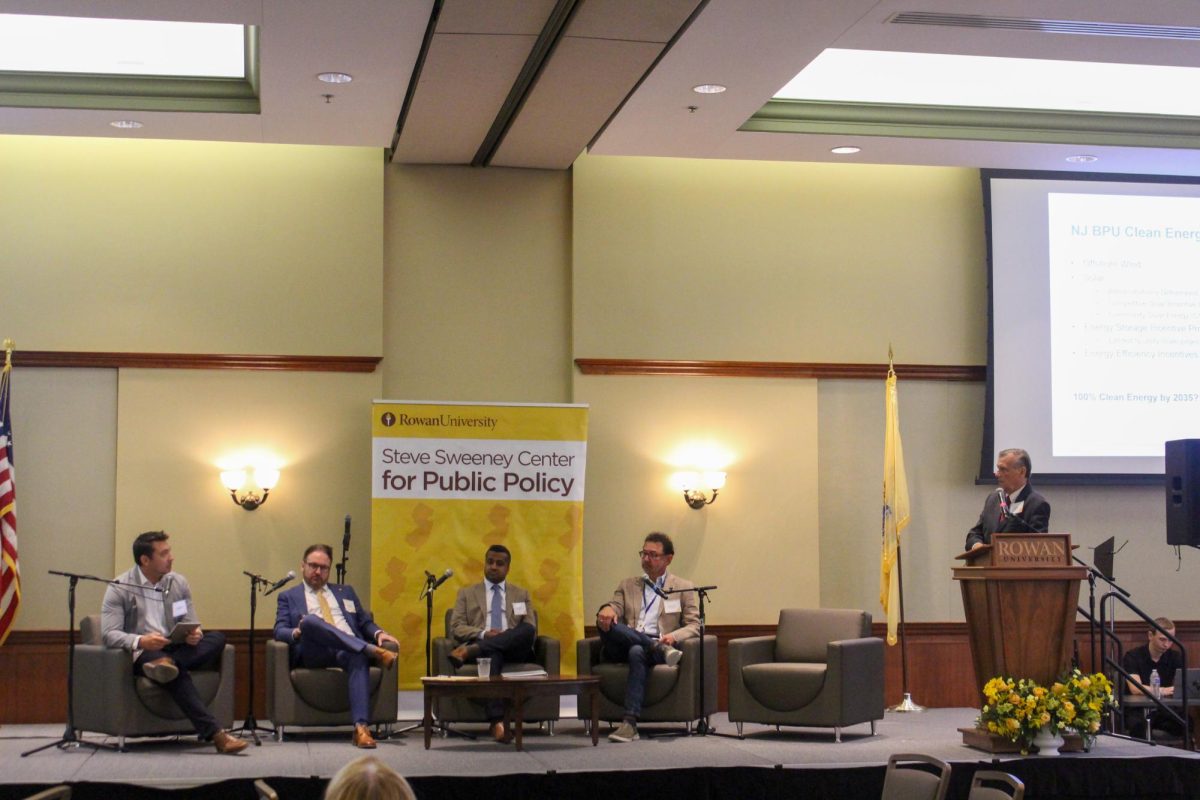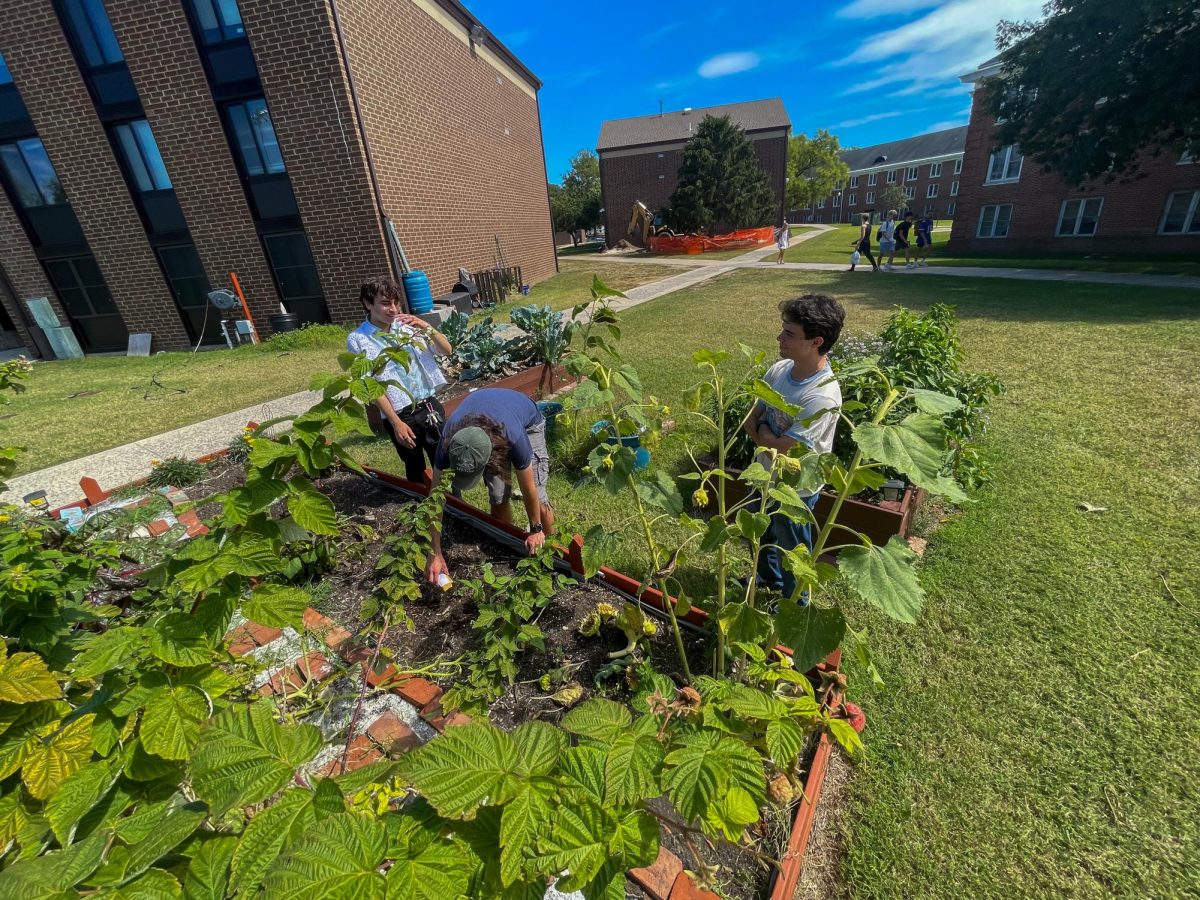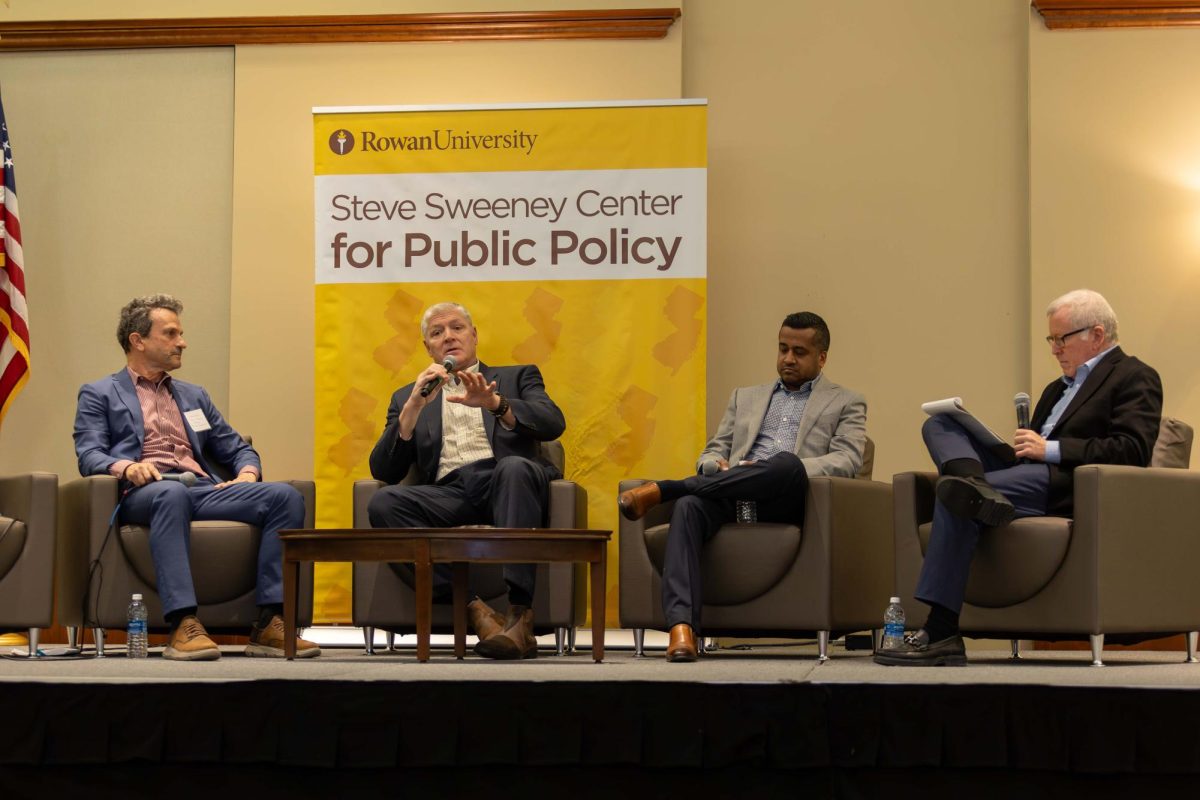Now that Rowan University’s West Campus farmland has been harvested and cleared for the Spring seedlings, the koi fish have swum in from President Houshmand’s backyard.
“This is a fun thing for students who love that kind of thing to come and see these beautiful creatures that are really colorful. They’re really, really gorgeous. It’s also very soothing to sit down and just see them swim around,” said koi fish breeder and Rowan University President Ali. Houshmand.
Surrounded by fencing to protect the expensive fish, sits a greenhouse with three different ponds with filtration systems that can allow the students to start experimenting with aquaculture.
Aquaculture creates a sustainable way to grow and fertilize plants without the need for ground soil. The koi fish live, eat and poop in their pond and that water is then transferred to a shallow plant bed that acts like a bed of soil where the fish-fertilized water can allow the plants to grow.
According to World Water Reserve, “They are some of the best fish at creating nutrients in an aquaponics system, such as ammonia, magnesium, and potassium – all of which are required for healthy plant growth.”
There are two different ponds they’re using to test which, if either, works better. The south system is a two-part pond made from “scraps” like cinderblocks for the structure and a tarp for the pond lining. The North system is a tank that is worth upwards of $30K. The team at the farm will put half of the fish in each system to compare the results. Currently, they have around 40 koi fish at the farm but are expecting another 90 in the coming weeks.
“The experiment right now is to see if it’s worth buying a 30,000 system or can we just build a pond from spare parts,” said Brendan Bermingham, a GIS and environmental and sustainability studies major. “If they’re the same, why spend thousands of dollars?”
Continue reading the full story at The Whit Online.
This article originally appeared in the The Whit, a student-operated campus news outlet for Rowan University and a content partner with South Jersey Climate News.

